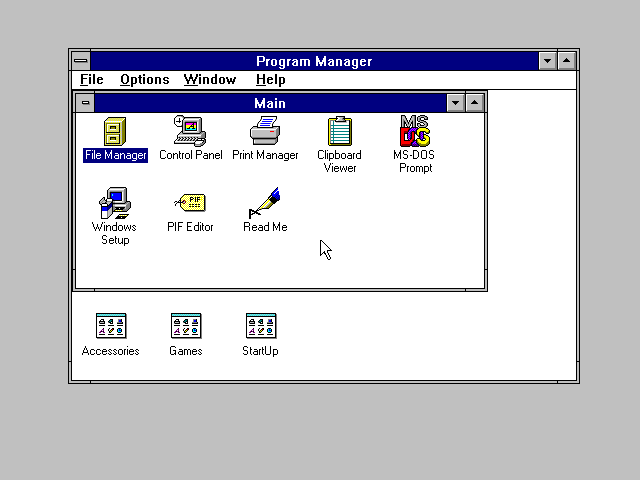
Update: Busta Rhymes has been allowed into the UK.
I know the developments in the life of Busta have been consuming your time over the last 24 hours. You can now go back to worrying about the impending collapse of the economy. Have a wonderful day!
http://muppet.wikia.com/wiki/Muppet_Wiki
I cannot even add to the sheer brilliance by a catchy line or two... pass me the Snuffleupagus pills.





While most people in the US are wrapped up in election fever as November approaches, few below the 49th parallel even know that Canada is going to the polls in three weeks. And perhaps the differences between our political systems, while many, would provide some encouragement for me to at least like one electoral process over the other, I somehow manage to hate them both.
Both systems trumpet "democracy" and try to convince voters of an Ancient Greek manisfestation of "by the people, for the people." Both systems sell their processes on the idea that an election is the opportunity for the "little guy" (as spatially misogynist as that term is) to have the same say as anyone else.
The fallacy of such claims rests on one simple fact: both the US and Canada are effectively constitutional oligarchies. Oh sure, we get the end-user choice, but how many coffee filters, strainers and sifting devices did that choice have to get through? Because quite honestly, in Canada, I don't get any say in which person will be my Prime Minister. Our parliamentary party system allows for a small group of people to decide on who, within the party, runs for party leadership. A slightly larger group chooses which of these elite actually get the title, and then, we don't even vote directly for the person who's leading the country - we vote for their party affiliation.
The US is slightly more effective in giving its citizens direct input as to the country's figurehead, but such a race invariably results in a popularity contest that is not reliant on policy and promises or, even worse, hearkens back to party lines etched in stone and swathed in fields of red and blue. So yes, US citizens do vote directly for a president, but what say did they have in the choices?
On both sides of the border, since the 1960's anyway, "new" media has been the cause of great consternation for political parties and the electoral process. The "new" media of television reared it omnipresent head in the infamous Kennedy/Nixon debate of 1960. Since then broader and burgeoning aspects of television (with the current pervasive onslaught of punditry) has morphed into our concept of new media to include blogs, podcasts, youtube and twitter accounts. The clear appeal of a politician's ability to successfully utilize technology is often grasped most readily by younger populations who, thinking they see a like-minded individual, will fill out online petitions and become friends on Facebook. The online component of a campaign can often be very lopsided for one candidate over another and, while it may be a noticable piece, it is often a largely irrelevant one as the demographic that constitutes online supporters are the LAST people to get out to vote.
I get that an electoral system will never be perfect, but when leaders can claim mandates from less than half of the eligible voters participating in the process I start to lose faith. If a candidate "stumps" on anti-poverty, and the impoverished are the least likely to register to vote, where is the accountability? If a platform policy speaks of immigrant rights and improving the situations of newcomers to the country, how likely are they to register to vote, even if they are eligible at all?
And, with all this said, my vote is crucial. I still don't buy the myth that people who don't vote don't retain the right to complain - that's complete bullshit. If I'm paying taxes (for the many social programs that I am thankful for) I have made my investment into my community and my country. I went through a common stretch of disillusion where voting was an afterthought for me and I was dismayed by the system enough to avoid even participating at the ballot. And while, I hate to adopt a cliche, one must pick their battles. I will never change the electoral system. The political will to do so has, quite simply, too many political angles for a sitting politician to tackle - after all, the old system has served most incumbents just fine thank you.
Instead, I participate though a vote and voice, and neither can be suppressed, and neither can be comprimised. If you've never found cause to drag your ass off your couch to get to a polling station and cast a ballot, I'm going to be the last one to criticize because I've been there and my couch has the indentation to prove it. My last word on the elections (in Canada and the US) is that I hate the electoral process, the political system, the lobbyists, pundits and backroom deals, but, when the writ is dropped, I will vote and vent and love and hate with the best of them.

Gotta love thinkgeek. There's a built-in speaker and the drum sounds match... strange that I don't see any women's sizes.
Okay... no comparisons to football fields here, but seriously, $26,000 a night.
Sure you have a few drinks and think it's all worth it as you jump in the sack, but then you wake up, look around and think... "crap, I coulda bought a sedan."


After considering the affectation that I have for lists, I have tried to come to grips with why I absolutely abhor award shows. After all, aren't award shows simply groupings of lists that get refined to a final list of the night's winners?
I have, however, parsed down the key difference between liking lists and hating award shows: pomp.
If award shows could reduce down the core information (i.e. candidates and winners) to half an hour or less - I'd watch. Instead, the award show format of grandiose gala is perhaps the most BORING and taxing hours of television one can sit through. As much as I might like a host choice one year compared to the next, even a great host can not overcome the sheer banality of scripted humor and over-the-top musical numbers that should be consigned to the next High School Musical sequel.
I could care less about the red carpet and her red dress - who she's wearing, how much the necklace costs, how fabulous anyone looks or what's in the gift bags for the presenters.
I really don't need to see Hollywood starlets crammed into dresses with painted on smiles as their handlers tell them which direction to turn to when the cameras flash on them. I don't care to see unlikely pairings stumble over verbals fondlings of each other while trying to choke out unfunny dialogue before ripping open an envelope. I don't want to see a musical performance by an artist I don't like, and, even more, I don't want to see a watered-down uninspired performance by an artist I do like. And finally, I don't want to see acceptance speeches that contain people thanking those I don't know, don't want to know, and don't care about. I don't care that an actress wants to thank her mother or drama teacher, or a singer wants to thank his crew or god. I don't want to see people weeping or fist-pumping in joy.
I would rather award shows became more debate-oriented. Let's have some well-informed people talking intelligently about who should win, and why for an hour before the winners are announced. Let's have an awards show that lasts an hour or less and gives me the information quickly, efficiently without any envelopes. Let's have after shows that contain the same (or different) panel of "experts" consider the decisions that were made and talk about the artistic merits of the winning choices.
Like watching any faux sport that has a basis in judging instead of hard numbers, award shows don't (and in fact can't) deal with any intrinsic data: it's all subjective. And I appreciate the filtering mechanism may be knowledgeable and that the process is engrained in history and tradition, but essentially for every 3-4 hour award show, I'm waiting for twenty names that could be read in less than two minutes. Watching sixty minutes of hockey or football during a three hour span is taxing enough at a 3:1 ratio. Award shows commonly have a 240:1 ratio of unwatchable crap compared to somewhat interesting information. And this assumes that I have any investment in the nominees to begin with.
I rather we simply pack all award shows in a giant envelope and ship them off to the Lost island where all of the nominees could, in Survivor-like fashion, eliminate each other one at a time until it turned into documentary about how nature had reclaimed its territory. If such events would happen I could happily announce that the ultimate winners would be the viewing public.


